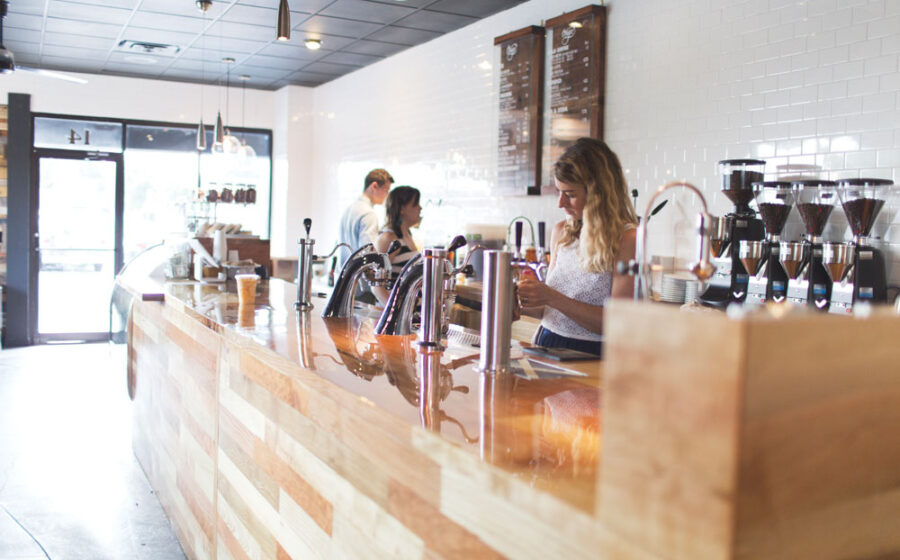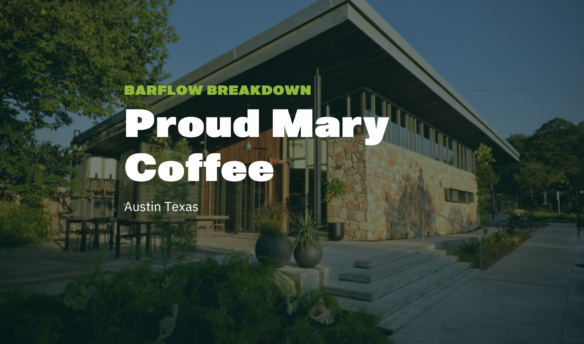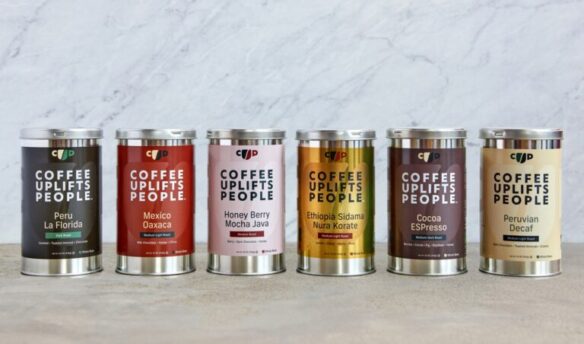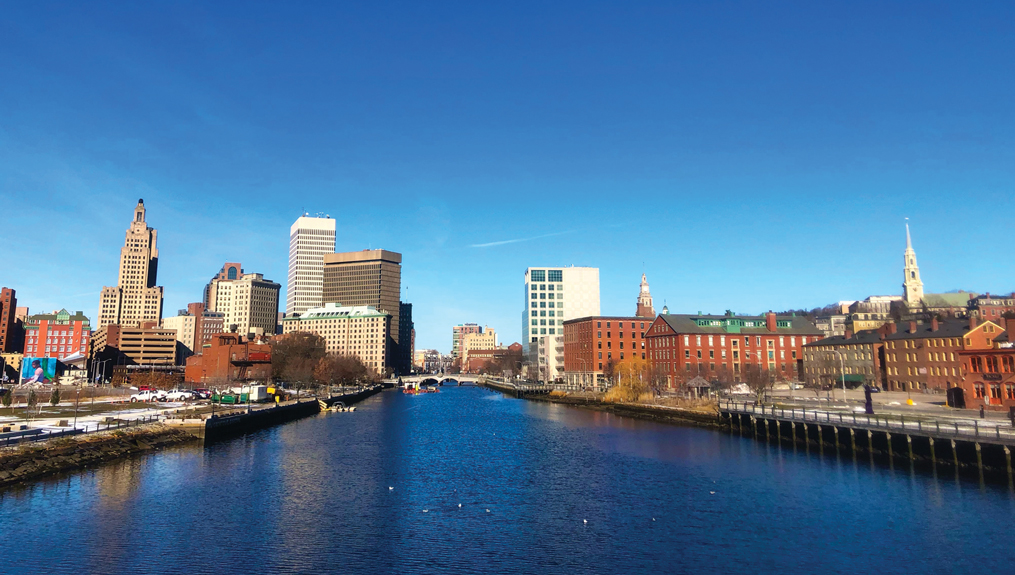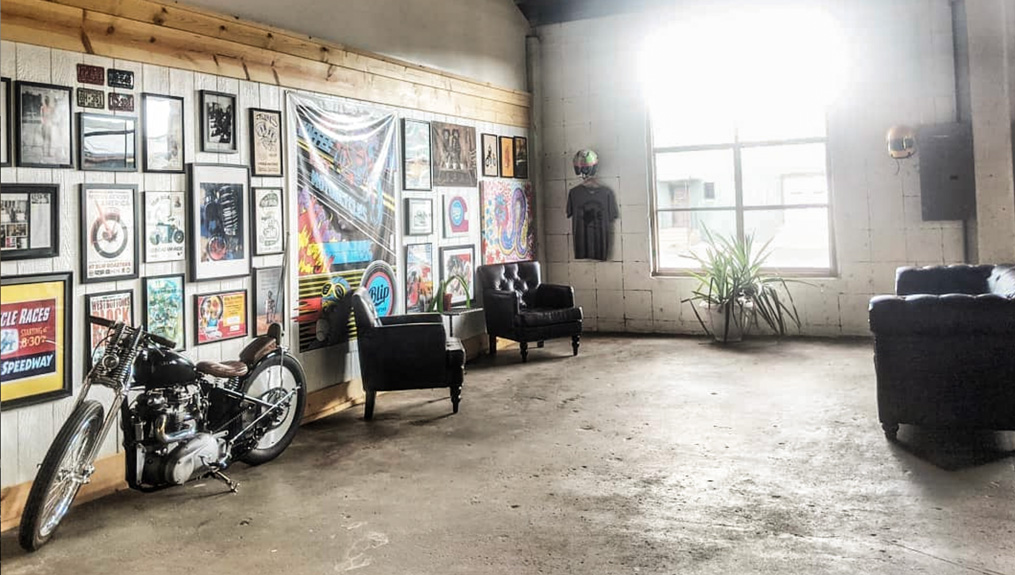[S]pecialty coffee is relatively new to Northwest Arkansas. The region may be better known as the birthplace of multinationals Walmart and Tyson Foods, but the Springdale metropolitan area is also the state’s cultural epicenter. It’s home to the University of Arkansas in liberal-minded Fayetteville; the new and impressive Crystal Bridges Museum of American Art in Bentonville; and the southern tip of the Ozark Mountains, a celebrated destination for fishing and world-class cave systems.
It’s to this dynamic region that the state’s young and adventurous seem to be flocking, and this growing populace has given rise to a thriving third-wave coffee scene. Onyx Coffee Lab, with locations in Springdale and Fayetteville, is capitalizing on this steady growth by offering locals meticulously roasted coffee against a backdrop of modern Ozark design (think stitched copper bar and local reclaimed church wood).
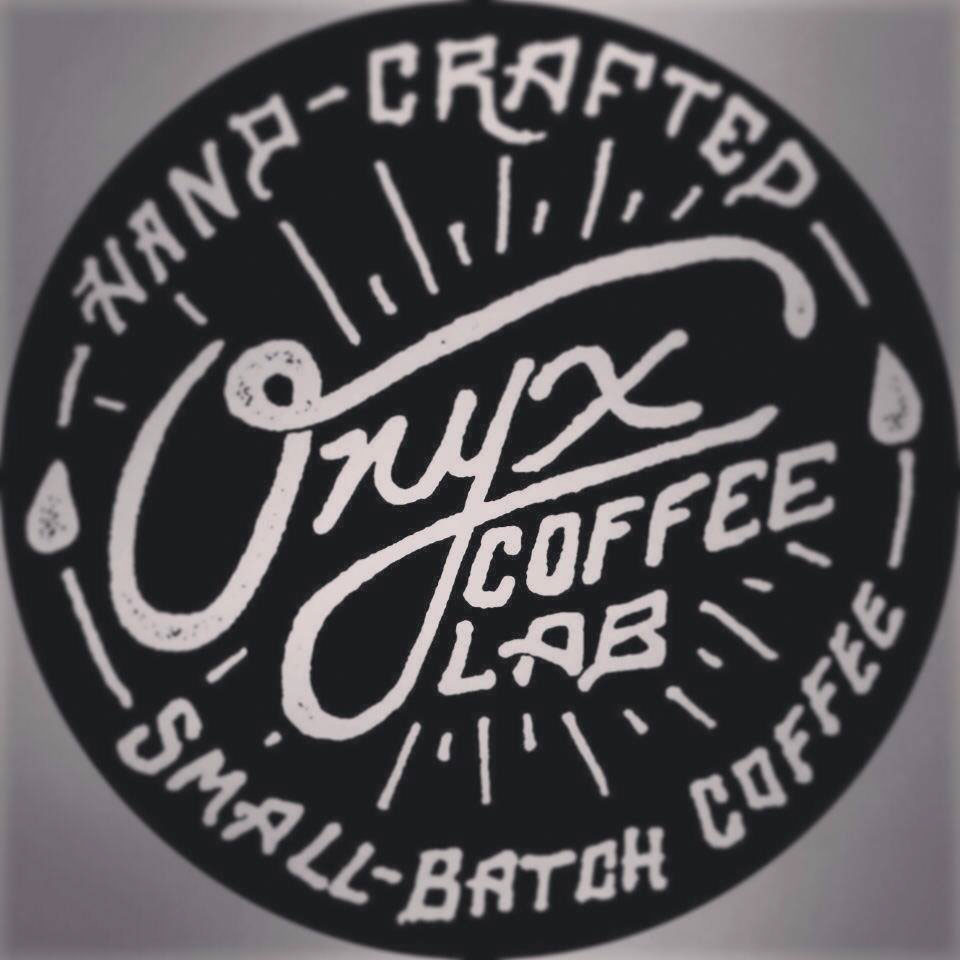 Owners Andrea and Jon Allen are each just 30 years old, but they already have one previous enterprise, Anonymous Coffee Roasters, behind them. The husband-and-wife team launched Onyx two years ago, and since then have fostered local specialty coffee appreciation by holding classes at their roastery and weekly themed cuppings, with Onyx poised to quickly expose the region to passionate, artistic coffee craft.
Owners Andrea and Jon Allen are each just 30 years old, but they already have one previous enterprise, Anonymous Coffee Roasters, behind them. The husband-and-wife team launched Onyx two years ago, and since then have fostered local specialty coffee appreciation by holding classes at their roastery and weekly themed cuppings, with Onyx poised to quickly expose the region to passionate, artistic coffee craft.
Fresh Cup caught up with the Allens to discuss their plans to strengthen Northwest Arkansas’ specialty coffee community by fostering education and sharing their seed-to-cup philosophy, in addition to good coffee.
Q: How does Onyx Coffee Lab differ from the average coffee shop?
Jon Allen: It’s a coffee bar and we serve traditional drinks somewhat like other shops do, but we also do a lot of sample roasting and I do a lot of consulting for importers. I’m a Q Grader, so as far as sourcing things, we do all of that in-house. Our roaster is out front the way that it would be in a roaster-retail shop, and we also hold lots of classes there. Instead of just opening a bag and there being coffee, consumers get to experience some of the process of roasting, and as we sample, roast and cup, they get to see that whole process take place. It just felt more like a lab, and the idea for us was where science and art meet—that’s what we wanted the consumer to experience as well.
Q: What is the third-wave scene like in Northwest Arkansas?

JA: If you’re looking at the population here, there’s still a lot of room for growth. Northwest Arkansas is kind of an interesting area because three of the largest companies in the world are stationed in this small town [Walmart, Tyson and J.B. Hunt Transport Services], so you have a strange mix of big urban money and a hippie-farm style. People are pretty open-minded, and there’s enough culture to support people giving things a shot that might be slightly more expensive or a little more refined.
Q: What is the next step for Onyx?
AA: In the next year or so, we would like to find a bigger multi-use space for our roasting and production. We’re kind of outgrowing our space at our Springdale store, so we’re looking for a location that would house the roaster and would have more room for green bean storage and more training. I’m active in the Barista Guild of America, so I’m really interested in trying to bring some of the SCAA education to our area because I think there’s a lot of interest in those organizations around here. Right now to go take a class is just really expensive because the camps and the expos are on the coast for the most part. We’re hoping [the roastery] can eventually serve as a training lab.
JA: We’re trying to get a lot of our baristas involved in [the Barista Guild], but when you’re centrally located its extremely difficult to be super involved. But we were, and it helped influence what our business is today.
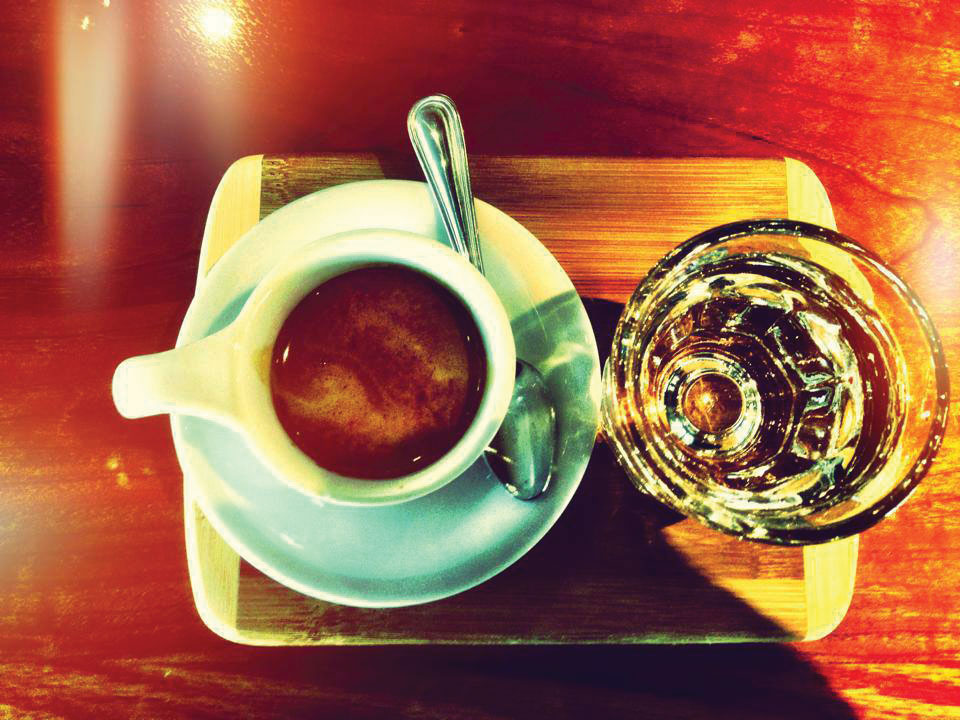
Q: It sounds like you’re dedicated to strengthening specialty coffee throughout the region, not just at Onyx.
AA: I personally believe that if all the shops in our area were to have access to more education and higher-quality beans, it actually would benefit everyone. Because more education for the public would happen as far as, “… why does this coffee cost $4.50 when I can get coffee for $1 at a gas station?” If everybody were raising their standards, it would help all the shops do better.
JA: I think that’s really starting to hit the Midwest, and we’re hoping it will have a big outpouring in Arkansas … the Kansas City [Mo.] coffee scene becoming quite a bit bigger has helped influence or at least make it acceptable for other surrounding areas to join that scene, whether it’s going back and forth to barista competitions or latte art throwdowns. We’re about to host our second throwdown, and it’s been great to see all the cafés in the area come out and really just support the industry as a whole. All of that reflects on the producer at the end of the day—you know, why maybe the cost here is a little higher. That chain of sourcing starts to make sense in a heartbeat when you see how many hands are involved in the coffee to begin with.

